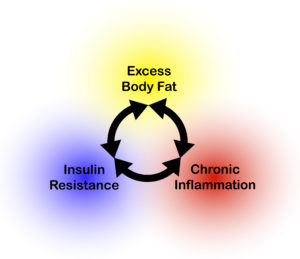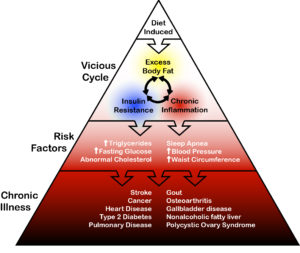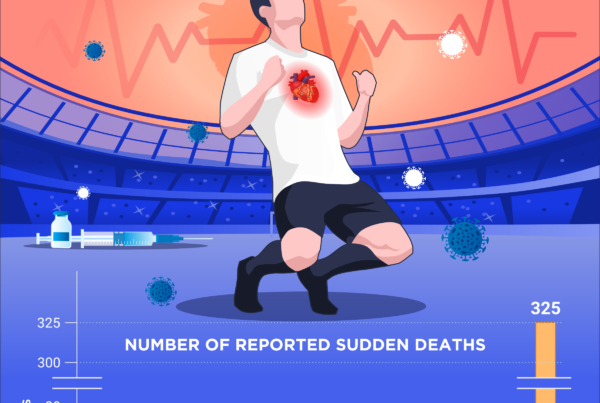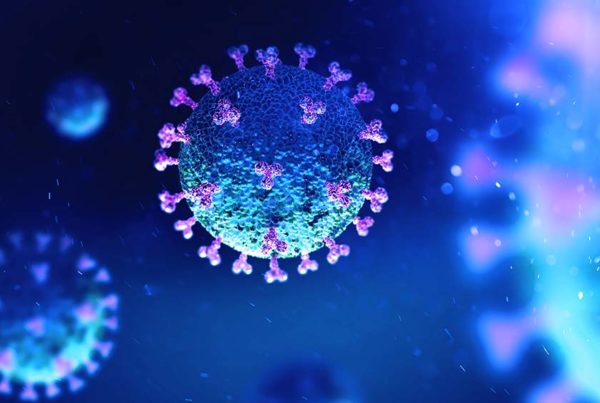
Yes, it’s true — but the real story goes beyond the headlines.
It’s no surprise that news reports about health and food topics often confuse the public — from athletes to couch potatoes, and everyone in between. This is especially true of reports regarding scientific studies.
Media reports often sensationalize, lack accuracy, or don’t tell the whole story. Likewise, for government recommendations, which have been flawed for decades and are often influenced by corporate concerns.
The newly published study in The Lancet about bad food being responsible for more deaths than tobacco, drugs, and high blood pressure, recently got major play in the mainstream media. Meanwhile, the response from those of us who already knew this information was a resounding “Ho-hum.”
The knowledge and experience of clinicians, who are in the trenches treating patients and are often on the cutting edge, go unnoticed. Experiencing firsthand what works in practice, despite what we were taught in school, we are often left out of the big information highway that feeds misleading food myths to unsuspecting consumers every day. Sensationalized sound bites are not going to help people eat better. Thus, the reason for my backroad website and ongoing passionate production of educational information to encourage self-care.
While many published studies about food contribute to our scientific understanding of health and fitness, the media reports almost always leave out the most important person — you. Individualization is shunned in research. Personalization is more difficult to study. So while a population study is not applicable to a single person, a case history demonstrating how a certain approach helped them is likewise not necessarily applicable to the rest of the population. (However, case studies are becoming accepted again in scientific journals after a long tenure of taboo.)
Most of us will die suffering from some chronic disease, and in many cases it will be the actual cause of death.
Death from chronic disease is what The Lancet study demonstrated; but we should not focus on death but what affects us while living. Before we die there is often chronic disease and disability. Even before that, lower quality of life from aches and pains, injuries and illness, can develop for decades, often beginning in childhood. Most of these problems can be avoided or postoned, and food plays what has long been considered a most important role.
Eating a healthy diet is a primary lifestyle factor that can help people postpone and recover from disease, physical injury and disability. This was once referred to as prevention. People now have been conditioned to believe screening for disease, reactive care, rather than postponing it, being proactive, is “prevention.”
Unfortunately, chronic disease is also big business. The global stock market is a major player as health is a key driver of economic growth. A 2015 Morgan Stanley Research report on Sustainable Economics, called The Bitter Aftertaste of Sugar, forecasts higher healthcare costs, lower productivity, and economic disaster — unless something changes. They cite sugar as the commodity doing the damage. Sugar really is the new tobacco — both substances being highly addictive and great business models.
Also note that stocks in healthcare businesses (best described as disease-care), have been booming for decades. But watch out — what would happen if enough people got healthy? Could it lead to another massive market crash?
Junk food, especially those containing sugar and other refined carbohydrates, is big business. In places like India, increased sugar intake has changed population health overnight. Our recent study showed that up to 80 percent of Indian adults are now overfat. (In the U.S., 91 percent of adults and 69 percent of children are overfat.)
Politics plays big business for food too. In the U.S., for example, the government subsidizes junk food ingredients, discouraging consumption of fresh fruits and vegetables. If people are encouraged financially to choose better food, they most often do. Unfortunately, last year the government relaxed rules again to allow refined grains, such as white breads, biscuits and white pastas, and other junk food, in school meals fed to children.
The philosophy of our modern medicine machine is to wait and treat the symptoms of chronic disease rather than address known lifestyle causes. Perhaps too much big business and politics in healthcare ensures this approach.
The Lancet study also mentioned that bad food kills more people than drugs. Most drugs are illegal — we have a War on Drugs. The prescription drug business, more deadly than street drugs, is booming, including polypharmacy, and is a very serious problem. Yet drugs kill fewer people than food. Shouldn’t we have a War on Bad Food?
The study also encouraged eating so-called “healthy” foods, like whole grains. However, most people have never tasted real whole grains, and most products with ingredients listed as whole grains are packaged foods, made from processed wheat or other grains, often spiked with synthetic vitamins (which can be dangerous), typically containing sugar, vegetable oil or trans fat, or other unhealthy ingredients. In other words, most whole- grain products in the marketplace are junk foods in disguise. And, the body quickly converts these grains to sugar when consumed. (The tricks of the trade also now include gluten-free foods, most of which are also junk food.)
A major problem is that most people don’t really know the definition of junk food. This thanks to mega-media distortion and massive propaganda-based marketing of junk food — it’s global. But it’s simple: there are two categories of food on earth: junk food, and natural food. And if you add junk food to natural food, it becomes junk food.
It’s been known for decades that food influences our health and fitness in many significant ways. Today, more people are on the bandwagon, convinced, partly because science is catching up, and often because they’ve experienced the benefits of healthy eating firsthand as a remedy to personal problems. There is now a good consensus in the scientific community about avoiding sugar and other junk food. Unfortunately, junk food companies keep careful track of consumer ideas, countering with misinformation by adjusting food names and images, marketing, ingredients, and other factors that sell cleverly disguised new-and-improved junk food. Consider the increasing amount of organic junk food in health stores.
Food is a common trigger of chronic disease and disability. Chronic disease is the world’s primary healthcare problem, a main cause of death and disability that comes with colossal costs. Addressing this problem should be a key focus, with less emphasis on individual conditions like heart disease, cancer, diabetes, Alzheimer’s and others too often used as buzzwords (certainly we have to focus on them to make a diagnosis and provide care).
One reason for this is that most chronic disease and disability is preceded by food-induced chronic inflammation. Associated with this is also the condition of insulin resistance, which I have called carbohydrate intolerance throughout my career. Both of these underlying causes of chronic disease are promoted by excess body fat. This becomes a viscous cycle:
The bigger picture includes the many food-induced risk factors for chronic disease such as poor blood fats, hypertension, pre-diabetes, and others:










